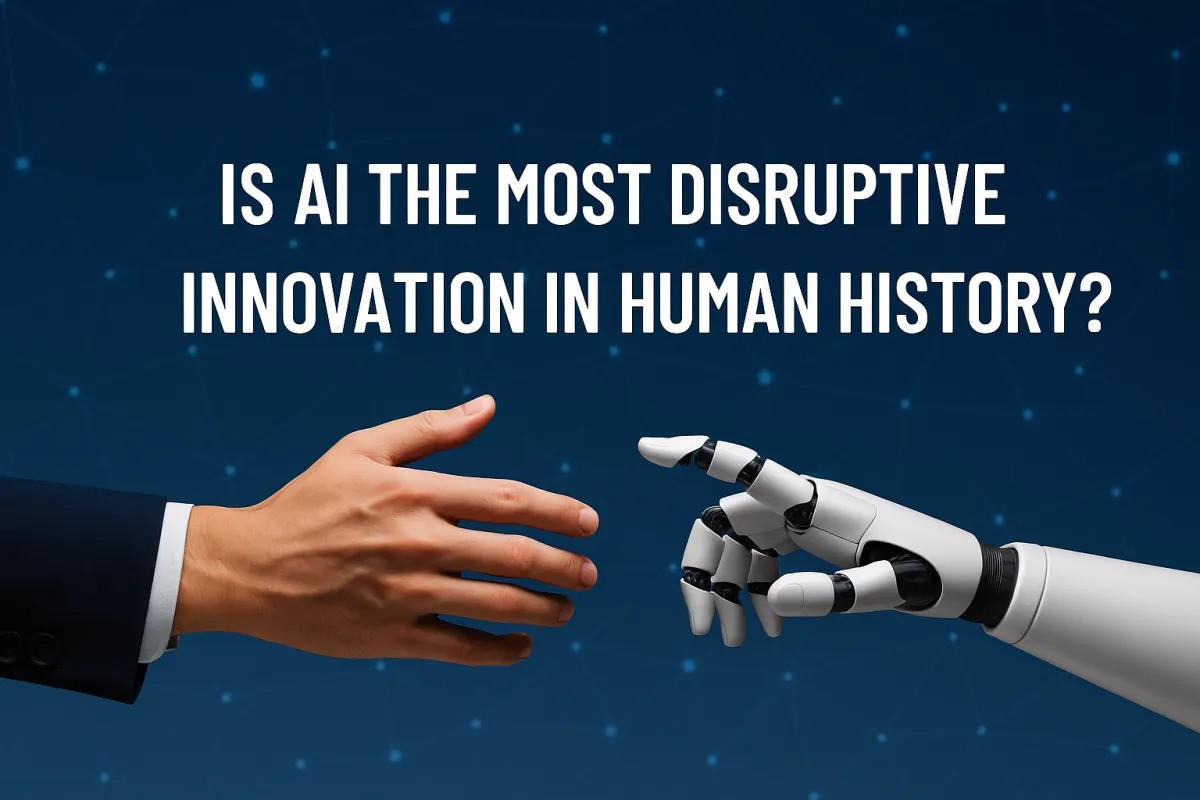Digital Marketing Articles by LaunchingPros

How AI Is Reshaping Our World—and What It Means for Your Future
Is AI the Most Disruptive Innovation in Human History?
Each week, we dive into videos that spark conversation—from marketing insights to emerging technologies—and this one left us buzzing.
In the video we review from instagram, a commentator makes a bold claim: AI is the single greatest innovation in human history. Bigger than the internet. Bigger than electricity. On par with the splitting of the atom.
Too dramatic? Maybe not.
Scarcity of Knowledge Is Disappearing
Traditionally, many professions—like law, medicine, and consulting—have relied on scarcity of knowledge to create value. The reason lawyers charge a premium isn’t because they have access to exclusive forms or documents (those are often public); it’s because they know how to navigate complex legal systems based on years of experience and precedent.
But what happens when AI knows just as much—and can retrieve it in seconds?
With tools like ChatGPT and AI-powered deep research, knowledge is no longer scarce. It’s everywhere. In fact, as the speaker says, "knowledge is becoming like water—free and infinite."
This reframes the value of human contribution. If AI can access all knowledge at once, what’s left for us?
The Coming Economic Disruption
The idea that AI could disrupt our entire economic system isn’t science fiction—it’s a conversation happening right now.
Real estate agents may still be needed for hyper-local insights, but AI and platforms like Zillow already streamline most of the home-buying process.
Lawyers, consultants, and even doctors are seeing AI take on the research, analysis, and even diagnostic roles that were once strictly human territory.
Trades like plumbing or construction may be safe—for now. But as robotics improve, even those could be disrupted.
Which raises the question: What happens when there are no jobs left?
That’s where the conversation turns toward Universal Basic Income (UBI)—a model where the government provides a living wage regardless of employment. Whether that’s a utopia or dystopia depends on your perspective along with a few other unpredictable factors.
The Role of Purpose
If AI and automation take over the "work," what do we do?
This hits at something deeper than economics. It’s about purpose. What gives our lives meaning if we’re no longer needed to produce?
That’s where the human touch still matters:
Connection
Creativity
Community
And yes—authenticity
We’ve already seen a surge of interest in human-made content, artisanal products, and handcrafted experiences. As the internet becomes more flooded with AI-generated everything, we believe people will start to crave what’s real—even if it’s flawed.
The Future Isn’t All Doom
Sure, the speaker uses strong language: AI is coming fast. It’s going to break systems. You either merge with the machine or reject it.
But maybe there’s a third option: adapt.
Every major innovation in history has come with fear. Cars replaced horses. The internet "threatened" jobs. But what actually happened? We evolved. New industries emerged. New opportunities unfolded. And while AI will absolutely change the landscape, it also opens the door for new ways to solve problems, create value, and build a better life.
The key is using AI, not being used by it.
In the end
In an interview with Dana White, owner of UFC, a reporter posed the question of what he wants his legacy to be. He responded with no hesitation, "I want my kids to think I was a good dad." This took the reporter by surprise. He didn't care to be remembered by his business accolades, he just wanted to be remembered by the people that mattered most to him ... His family.
As we navigate rapid changes, maybe it’s less about building a legacy the world will remember—and more about showing up for the people right in front of us. Because no matter how powerful AI gets, it can’t replace human relationships, real-world impact, and genuine connection.
Follow Us
© 2025 Launching Pros. All rights reserved.
